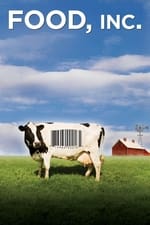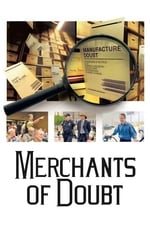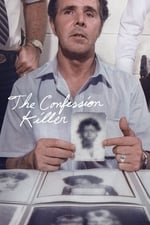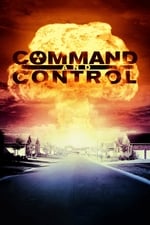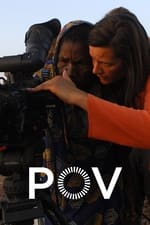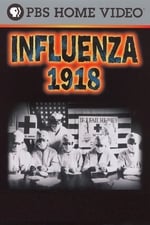Informazioni Personali
Conosciuto Per Direzione
Crediti Conosciuti 18
Sesso Maschio
Compleanno -
Luogo di Nascita California, USA
Conosciuto anche come
- Rob Kenner
Valutazione Contenuto
63
Siamo così vicini, eppure così lontani.
Entra per segnalare un problema
Biografia
From Wikipedia, the free encyclopedia.
Robert Kenner is an American film and television screenwriter, television director, film director, film producer, and television producer.
His career began in 1971 as an assistant cinematographer, and produced his first motion picture, 3:15 - The Moment of Truth, in 1984 (although it was not released until 1986). His second feature film did not come until 1991's Lonely Hearts.
His first breakout project was the televised documentary The Lost Fleet of Guadalcanal, which he produced for the National Geographic Society and which aired in 1993 on PBS. The following year, he directed and produced Russia's Last Tsar for National Geographic and PBS. He also directed and produced America's Endangered Species: Don't Say Good-bye in 1996. The International Documentary Association presented the picture with the Strand Award for Best Documentary.
Kenner began a long association with the award-winning PBS documentary television program American Experience in 1998. That year he directed and produced the widely reviewed Influenza, 1918 (about the 1918 flu pandemic)and followed it up with John Brown's Holy War (about abolitionist John Brown) in 2001. His first documentary which he wrote, directed and produced was War Letters, which aired on American Experience in 2001. The documentary is based on the 2001 New York Times best-selling book War Letters: Extraordinary Correspondence from American Wars by historian Andrew Carroll. He produced the episode, "The Road to Memphis," for the 2003 PBS documentary series, The Blues, and in 2005 produced and directed the Vietnam War documentary, Two Days in October. The documentary was the season premiere of American Experience. The film, which is based on David Maraniss' book They Marched into Sunlight, looks at the parallels between a Viet Cong ambush of a U.S. Army patrol (and the subsequent cover-up of the loss by the American military) and a violent clash between police and student protesters at the University of Wisconsin–Madison—events which occurred 24 hours apart in October 1967. The episode was nominated for and won the award for Exceptional Merit in Nonfiction Filmmaking at the 2006 Emmy Awards.
In 2008, Kenner produced and directed the documentary film, Food, Inc., which examines large-scale agricultural food production in the United States, concluding that the meat and vegetables produced by this type of economic enterprise leads to inexpensive but environmentally harmful and unhealthy food.
Description above from the Wikipedia article Robert Kenner, licensed under CC-BY-SA, full list of contributors on Wikipedia.
From Wikipedia, the free encyclopedia.
Robert Kenner is an American film and television screenwriter, television director, film director, film producer, and television producer.
His career began in 1971 as an assistant cinematographer, and produced his first motion picture, 3:15 - The Moment of Truth, in 1984 (although it was not released until 1986). His second feature film did not come until 1991's Lonely Hearts.
His first breakout project was the televised documentary The Lost Fleet of Guadalcanal, which he produced for the National Geographic Society and which aired in 1993 on PBS. The following year, he directed and produced Russia's Last Tsar for National Geographic and PBS. He also directed and produced America's Endangered Species: Don't Say Good-bye in 1996. The International Documentary Association presented the picture with the Strand Award for Best Documentary.
Kenner began a long association with the award-winning PBS documentary television program American Experience in 1998. That year he directed and produced the widely reviewed Influenza, 1918 (about the 1918 flu pandemic)and followed it up with John Brown's Holy War (about abolitionist John Brown) in 2001. His first documentary which he wrote, directed and produced was War Letters, which aired on American Experience in 2001. The documentary is based on the 2001 New York Times best-selling book War Letters: Extraordinary Correspondence from American Wars by historian Andrew Carroll. He produced the episode, "The Road to Memphis," for the 2003 PBS documentary series, The Blues, and in 2005 produced and directed the Vietnam War documentary, Two Days in October. The documentary was the season premiere of American Experience. The film, which is based on David Maraniss' book They Marched into Sunlight, looks at the parallels between a Viet Cong ambush of a U.S. Army patrol (and the subsequent cover-up of the loss by the American military) and a violent clash between police and student protesters at the University of Wisconsin–Madison—events which occurred 24 hours apart in October 1967. The episode was nominated for and won the award for Exceptional Merit in Nonfiction Filmmaking at the 2006 Emmy Awards.
In 2008, Kenner produced and directed the documentary film, Food, Inc., which examines large-scale agricultural food production in the United States, concluding that the meat and vegetables produced by this type of economic enterprise leads to inexpensive but environmentally harmful and unhealthy food.
Description above from the Wikipedia article Robert Kenner, licensed under CC-BY-SA, full list of contributors on Wikipedia.
Direzione
|
||||||
|
||||||
|
||||||
|
||||||
|
||||||
|
||||||
|
||||||
|
||||||
|
||||||
|
||||||
|
||||||
|
||||||
|
Produzione
|
|||
|
|||
|
|||
|
|||
|
|||
|
|||
|
|||
|
|||
|
Scrittura
|
|||
|
Creatore
|
